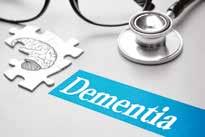
5 minute read
Medical Updates
Dates & Days
01 April
Advertisement
02 April 04 April 5 April 7 April 10 April
11 April
13 April 14 April 17 April 18 April 19 April
21 April
22 April 23 April 24 April 25 April 26 April 27 April 28 April 29 April 30 April
APRIL
Event Orissa Day Prevention of Blindness week World Autism Awareness Day International Day for Mine Awareness National Maritime Day World Health Day World Homeopathy Day National Safe Motherhood Day National Pet Day Jallianwallah Bagh Massacre Day B.R. Ambedkar Remembrance Day World Haemophilia Day World Heritage Day World Liver Day National Civil Service Day Secretaries’ Day World Earth Day World Book and Copyright Day National Panchayati Raj Day World Malaria Day World Intellectual Property Day World Veterinary Day World Day for Safety and Health at Work international Dance Day Ayushman Bharat Diwas
Earth Day is an annual event celebrated around the world on April 22 to demonstrate support for environmental protection. First celebrated in 1970, it now includes events coordinated globally by the Earth Day Network in more than 193 countries
Medical Updates
Taller men might have a lower risk of dementia A new longitudinal study that analyzed data from hundreds of thousands of men found a link between height and the likelihood of developing dementia Dementia — an umbrella term that encompasses various conditions involving cognitive impairment, the most common of which is Alzheimer’s — affects around 50 million people worldwide, according to data from the World Health Organization (WHO). There is currently no cure for dementia, and researchers are interested in pinpointing the many possible risk factors in order to facilitate early diagnosis and intervention.

Now, a new study from the University of Copenhagen, in Denmark, has found an association that had not been explored much before: a link between height and dementia risk. The research - led by assistant professor Terese Sara Høj Jørgensen — was spurred by previous studies’ suggestions that height may correlate with risks to brain health. Jørgensen and the team accessed data about height and eventual dementia diagnoses through conscription records and national registries. They have now published their findings in the journal eLife. The researchers looked at data from men born between 1939 and 1959. Their cohort included 666,333 individuals, of whom 70,608 were nontwin brothers and 7,388 were twins. The men in this cohort had taken conscript board examinations between 1957 and 1984, and national registries had clinically followed them until 2016. By analyzing data from these sources, the researchers found that 10,599 of the
666,333 men had developed a form of dementia at some point. The researchers observed that there appeared to be a correlation between a man’s height and his dementia risk — specifically, men who were taller than average appeared to have a lower risk of dementia than men who were shorter than average. Thus, if the mean height for men born in 1939 was 1.75 meters, for about every 6 centimeters over the mean height, there was approximately a 10% reduction in dementia risk. The researchers adjusted their analysis for possible confounding factors, particularly education levels and intelligence test scores. When they did so, the relationship between height and dementia risk was reduced — but not significantly. When they compared results among siblings, the researchers found that the relationship between height and dementia risk was present in brothers with different heights. The relationship was also present in twins, though the team admits that the results were less conclusive in this context. Antibiotics discovered that kill bacteria in a new way A new group of antibiotics with a unique approach to attacking bacteria has been discovered, making it a promising clinical candidate in the fight against antimicrobial resistance. The newly-found corbomycin and the lesser-known complestatin have a never-before-seen
way to kill bacteria, which is achieved by blocking the function of the bacterial cell wall. The discovery comes from a family of antibiotics called glycopeptides that are produced by soil bacteria. The researchers also demonstrated in mice that these new antibiotics can block infections caused by the drug resistant Staphylococcus aureus which is a group of bacteria that can cause many serious infections. The findings were published in Nature today. Online mindfulness-based cognitive therapy to improve lingering depression Researchers have found that online mindfulness-based cognitive therapy (MBCT) can improve lingering depressive symptoms. A team of researchers has found that online MBCT can improve a range of lingering depressive symptoms in people who have already received treatment for depression. The findings, which feature in the journal JAMA Psychiatry, are significant for both reinforcing the effectiveness of MBCT and potentially expanding patient access to the treatment. Mindfulness-based cognitive therapy (MBCT) is an approach to psy-

chotherapy that uses cognitive behavioral therapy (CBT) methods in collaboration with mindfulness meditative practices and similar psychological strategies. It was originally created to be a relapse-prevention treatment for individuals with major depressive disorder (MDD).[ Focus on MDD and cognitive processes distinguish MBCT from other mindfulness-based therapies. Mindfulness-based stress reduction (MBSR), for example, is a more generalized program that also utilizes the practice of mindfulness. MBSR is a group-intervention program, like MBCT, uses mindfulness to help improve the life of individuals with chronic clinical ailments and high stress lives. New molecule shows promise for Parkinson’s treatment Recent research in mouse models suggests that a new molecule might be able to tap into key neurochemical mechanisms and help treat Parkinson’s disease. Parkinson’s disease is a progressive, degenerative condition that affects the central nervous system. Usually, its most prominent symptoms involve movement — they can include involuntary limb trem

ors, rigidity, and slowness of movement. In a new study, researchers from the University of Helsinki, in Finland, have homed in on a molecule, called BT13, which they believe has potential as a therapeutic for Parkinson’s disease. The team presents the results of their research — conducted in vitro and in vivo, in mouse models — in a study paper featured in the journal Movement Disorders Acid reflux and anxiety: What to know Acid reflux and anxiety may share a close link. Some research suggests that anxiety might make acid reflux symptoms worse. Anxiety and stress may also be contributing factors to acid reflux in some cases. Conversely, acid reflux can be stressful and may cause anxiety in some people. People with troubling symptoms or symptoms that do not respond to home treatment should see a doctor. Acid reflux occurs when acid from the stomach leaks back up into the food pipe, or esophagus. It is a common symptom of gastroesophageal reflux disease (GERD).







